The 14th International CSR Forum held in Beijing
2019-06-20GoldenBeeGoldenBee0
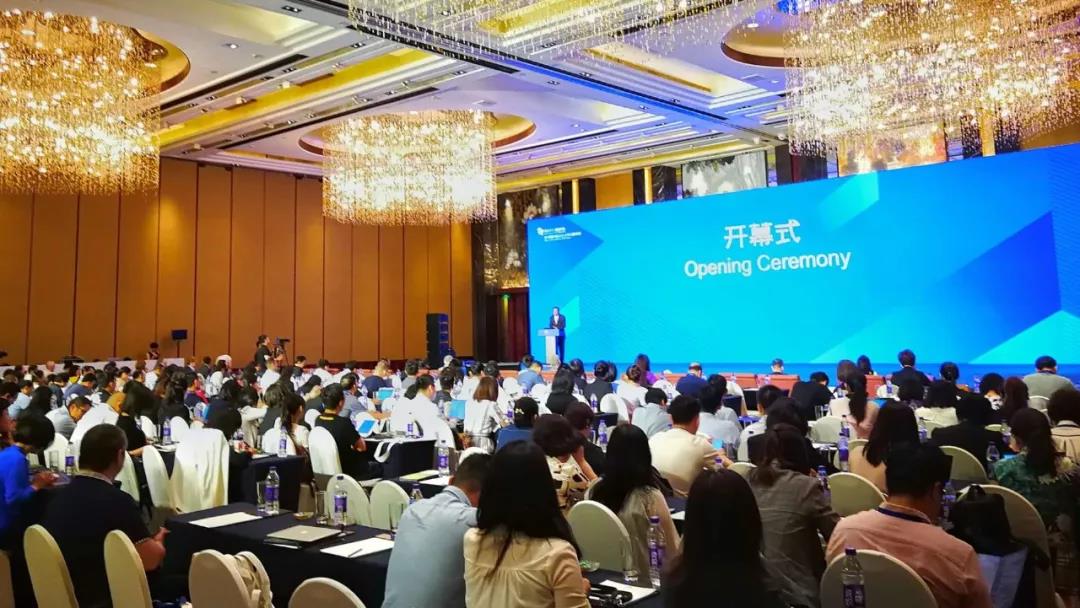
The 14th International CSR Forum themed on “Reinforce Responsibility & Reshape Value” was held in Beijing on June 12-13.
Nearly 600 Chinese and international representatives from various circles attended the Forum to exchange the progress and trends of CSR development in China and the world, and to discuss the corporate modes and approach to fulfilling social responsibilities.
The Forum was hosted by China Sustainability Tribune (formerly known as China WTO Tribune) and GoldenBee, co-hosted by CSR Europe, Council for Better Corporate Citizenship (CBCC), co-organized by amfori, and supported by UNICEF, the Embassy of Sweden in Beijing, and China Association of Automobile Manufacturers (CAAM).
Thoughts | CSR is approaching to a new era
Since the 19th CPC National Congress held, the concepts of “high-quality development”, “innovation-driven development”, “energy revolution” and “ecological progress” have become the trends of the times, and made stricter requirements for CSR development.
“Strengthening our efforts in CSR is significant and is an important path to promote high-quality development.” said Mr. Fan Bin, Deputy Director-General of the Department of Policies, Laws and Regulations of the Ministry of Industry and Information Technology (MIIT). He pointed out the importance of CSR. To achieve a big-to-powerful transformation for China’s manufacturing industry and realize high-quality development, it is a must to strengthen the significance of social responsibilities to enterprises and products, enhance the reputation of Chinese brands, improve the competitiveness of Chinese enterprises and industries with responsible manufacturing, and build a prestigious international image of China.
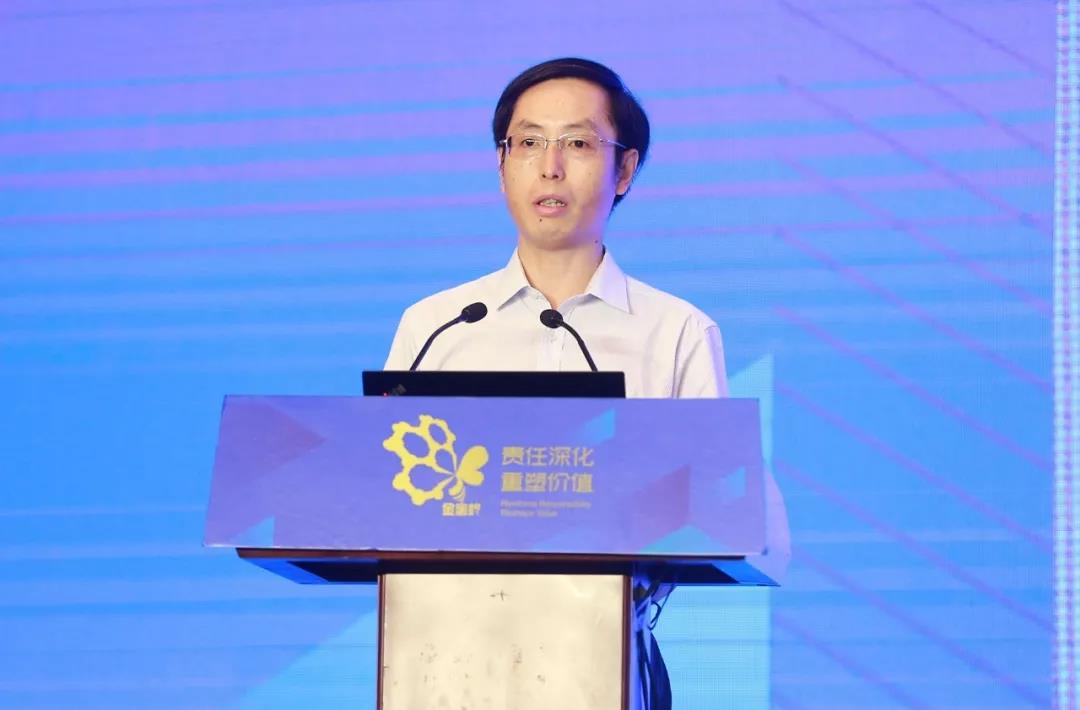
Mr. Fan Bin, Deputy Director-General of the Department of Policies, Laws and Regulations, MIIT
Mr. Ye Shengji, Deputy Secretary General of CAAM, pointed out in his speech that although China was the world’s largest country of automobile manufacturing and sales, there was still much improvement room for China’s social responsibility development. Confronted with the increasingly complicated international situation, the new trends of electrification, connectivity, intelligence and lightweighting, as well as the increasingly large and complex supply chains, the automobile manufacturers must have the awareness of sustainable development and fulfill their social responsibilities.
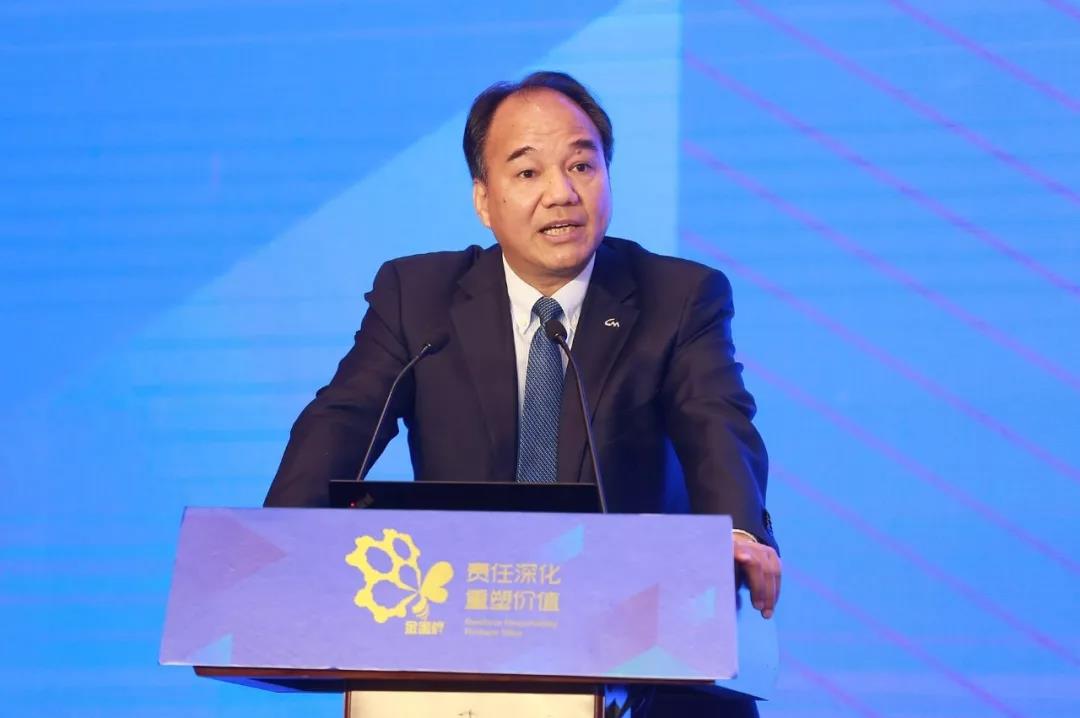
Mr. Ye Shengji, Deputy Secretary General of CAAM
Mr. Karl-Olof Andersson, Minister Counsellor, Deputy Head of Mission at the Embassy of Sweden in Beijing, said that Sweden was the first country to carry out bilateral cooperation on CSR with China, and Sweden had been highly valuing the CSR performance of enterprises. Sweden’s practical experience in sustainable business also showed that CSR helps strengthen risk management and control capabilities.
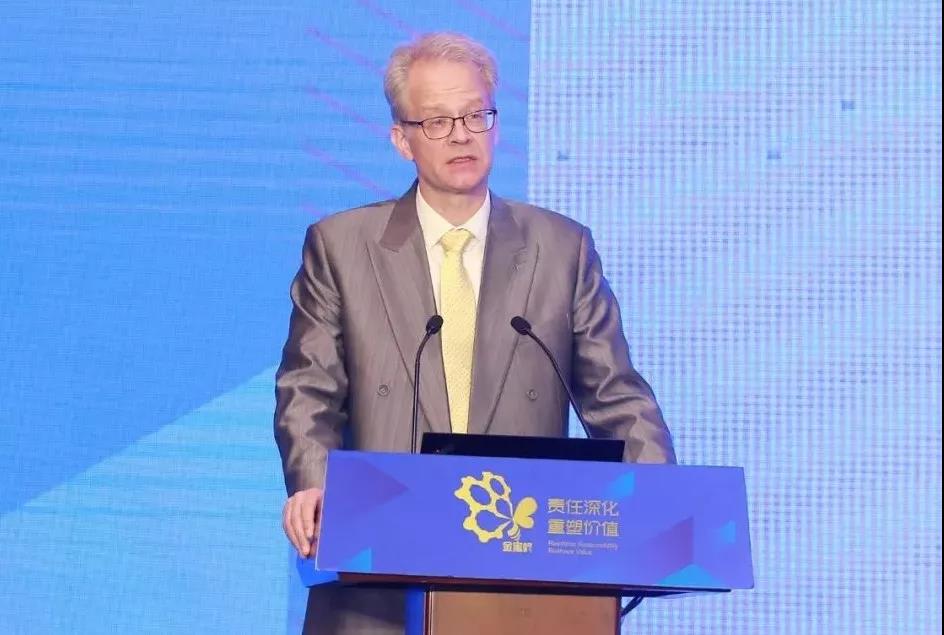
Mr. Karl-Olof Andersson, Minister Counsellor, Deputy Head of Mission at the Embassy of Sweden in Beijing
In December 2018, the establishment of the organization, the ISO 26000 Stakeholders Global Network, upgraded from ISO PPO, marked the beginning of a new era of ISO 26000. Mr. Hans Kröder, Vice Chair of ISO 26000 Stakeholders Global Network, explained at the Forum that the organization’s mission is to encourage each organization to maximize their contribution to sustainable development.
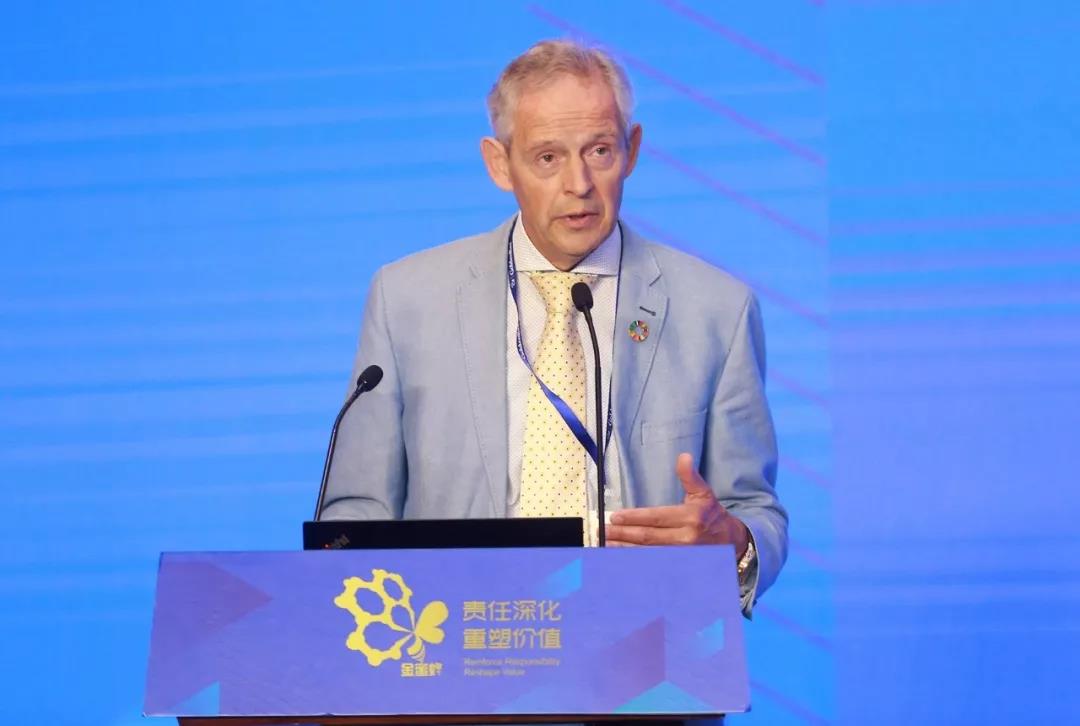
Mr. Hans Kröder, Vice Chair of ISO 26000 Stakeholders Global Network
Trends | The prospects of global CSR development
The Forum continued its features of professionalization and internationalization, closely followed the trends of themes by sharing the latest trends of global CSR development, and discussing the latest progress in implementing the Sustainable Development Goals (SDGs).
At the Forum, representatives from China, Europe, Japan, Indonesia, and the United States shared the latest trends of CSR development in their respective regions followed by in-depth communication. Although there were differences in issue focuses in different regions, some forward-looking topics were unanimous, such as how should companies contribute to SDGs, transparent governance, sustainable finance, business and human rights.
Mr. Yin Gefei, Founder and Chief Expert of GoldenBee, Secretary of ISO 26000 Stakeholders Global Network, analyzed the six trends of CSR development in China: 1) Regularization and standardization; 2) Consensus on SDGs topics and the development trend of “corporate responsibility in sustainability”; 3) Social responsibility factors shows more impacts on the financial & capital markets; 4) CSR gets more social attentions; 5) Global responsibility and supply chain sustainability management; 6) Quantitative development in CSR values.
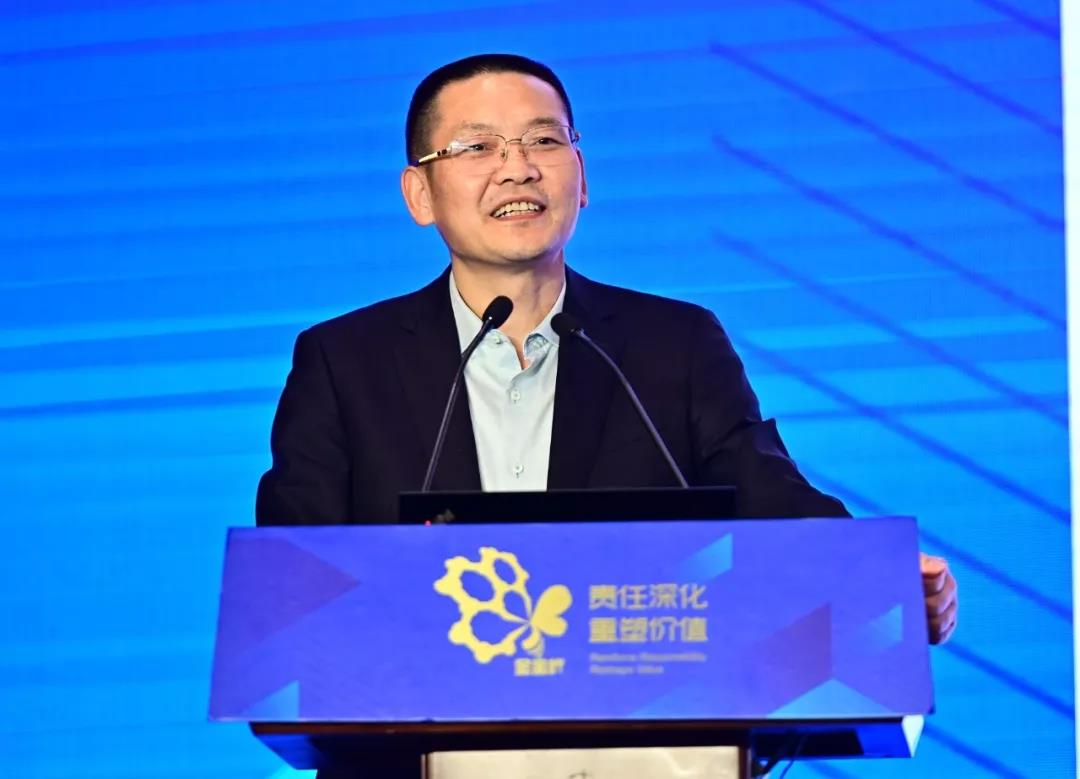
Mr. Yin Gefei, Founder and Chief Expert of GoldenBee, Secretary of ISO 26000 Stakeholders Global Network
In Europe, CSR started early but still has room for improvement. Mr. Jan Noterdaeme, Co-Founder and Senior Advisor of CSR Europe, said that European corporate transformation should focus on how to be better people-oriented, how to better utilize resources, and how to promote corporate digital responsibility, etc., so that sustainability can be incorporated into corporate development. He also mentioned that European social groups, NGOs and companies were working hard to build an Overarching Sustainable Europe Strategy 2030.
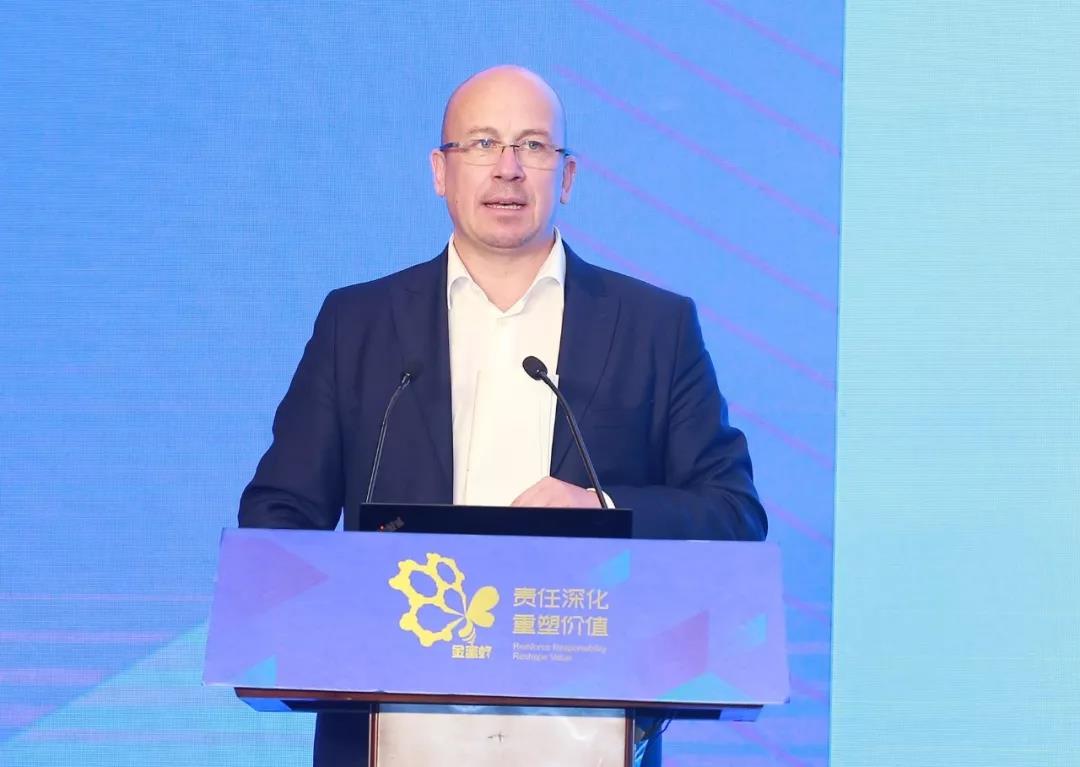
Mr. Jan Noterdaeme, Co-Founder and Senior Advisor of CSR Europe
According to Mr. Masao SEKI, Steering Committee Chairman of CBCC, Japanese CSR showed a trend of increased awareness of SDGs, rapid growth of ESG investment, and the landing of Society 5.0. He introduced the innovative practice of Tokyo 2020 Olympic Games by integrating the sustainable development concepts.

Mr. Masao SEKI, Steering Committee Chairman of CBCC
Suharman Noerman, Vice Chair of ISO 26000 Stakeholders Global Network, shared the latest development and trends of CSR in southeast Asia.
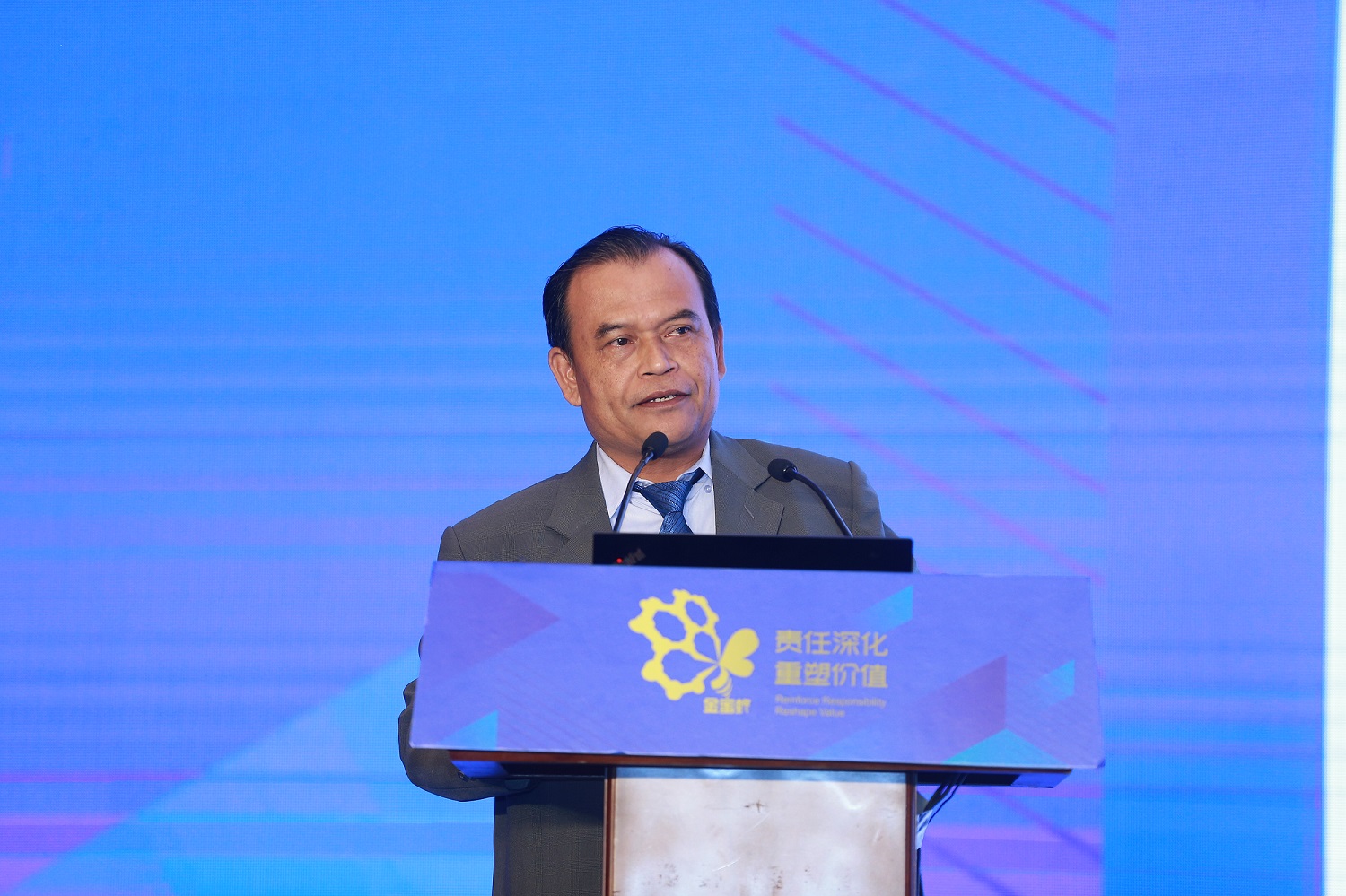
Mr. Suharman Noerman, Vice Chair of ISO 26000 Stakeholders Global Network
Carolyn Schmidt, Secretary of ISO 26000 Stakeholders Global Network, introduced three business examples of ongoing shifts that had not been highlighted in the United States, namely Benefits Corporations that build in CSR processes and goals, Worker-Owned Cooperatives, and Traditional Environmental Knowledge focusing on the management mode that underlies kinship between human and nature.
Mr. Sun Lijun, Alibaba Group Partner and Chairman of Alibaba Foundation shared his belief that social responsibility should be the core competitiveness of an enterprise, and only those enterprises that understood social integration and responsibility could become helpful members in the process of rapid development of the society.
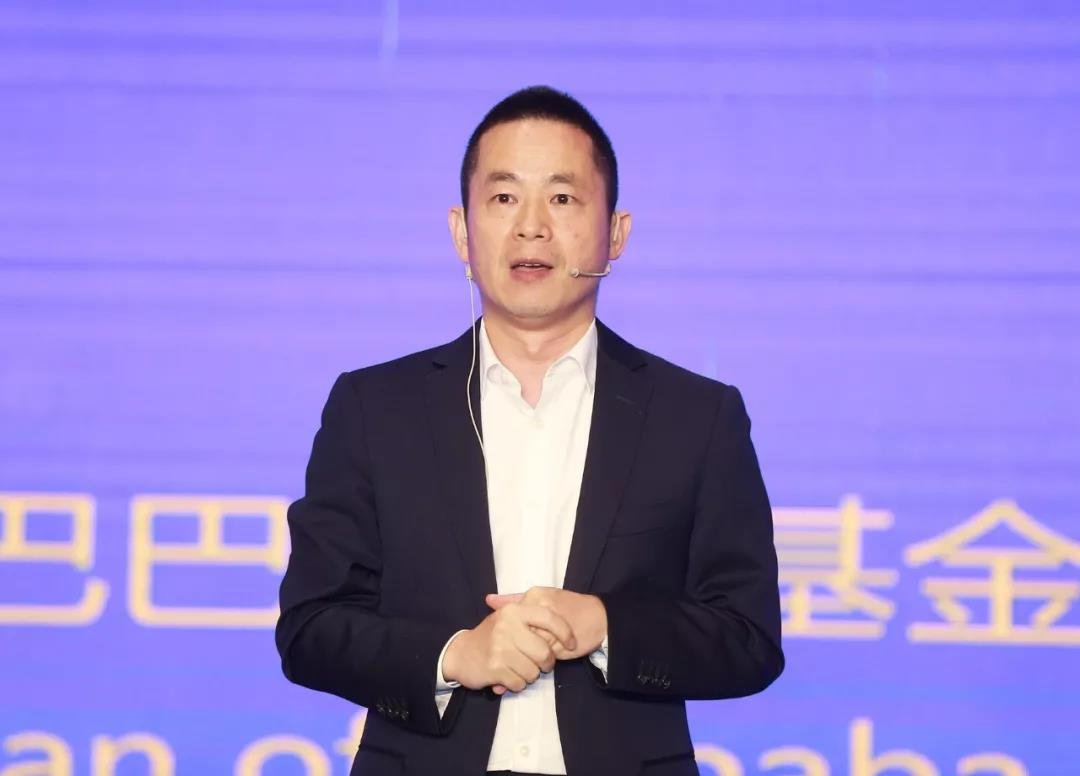
Mr. Sun Lijun, Alibaba Group Partner and Chairman of Alibaba Foundation
Hotspots | Exploration of the path of fulfilling responsibility
As an advanced platform for global CSR, the Forum has set up several panels to focus on current hot topics, share the latest trends of new paths of poverty alleviation in the new era, supply chain transparency, child rights and gender socialization in advertising, natural capital, sustainable brand, etc.
The panel “Business and Nature – Finding New Solutions for Environmental Sustainability”, for the first time, focused on “natural capital” that has not fully been recognized and evaluated. GoldenBee, Natural Capital Coalition and the World Business Council for Sustainable Development (WBCSD) jointly launched the “Business for Nature” in China.
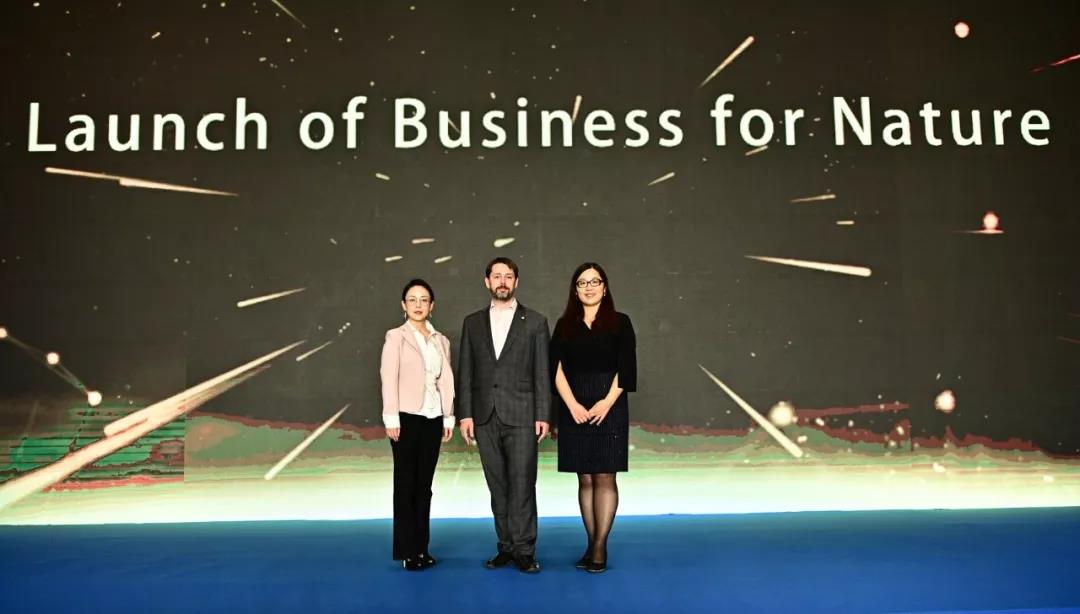
Regarding the impact of advertisements that are ignored by enterprises on the gender socialization, the panel “Child Rights in Marketing – Promote Positive Gender Socialization through Effective Advertising” called on enterprises not only to pay attention to gender equality in advertising, but also to focus more on the positive impact of advertising on children’s gender recognition and future development.
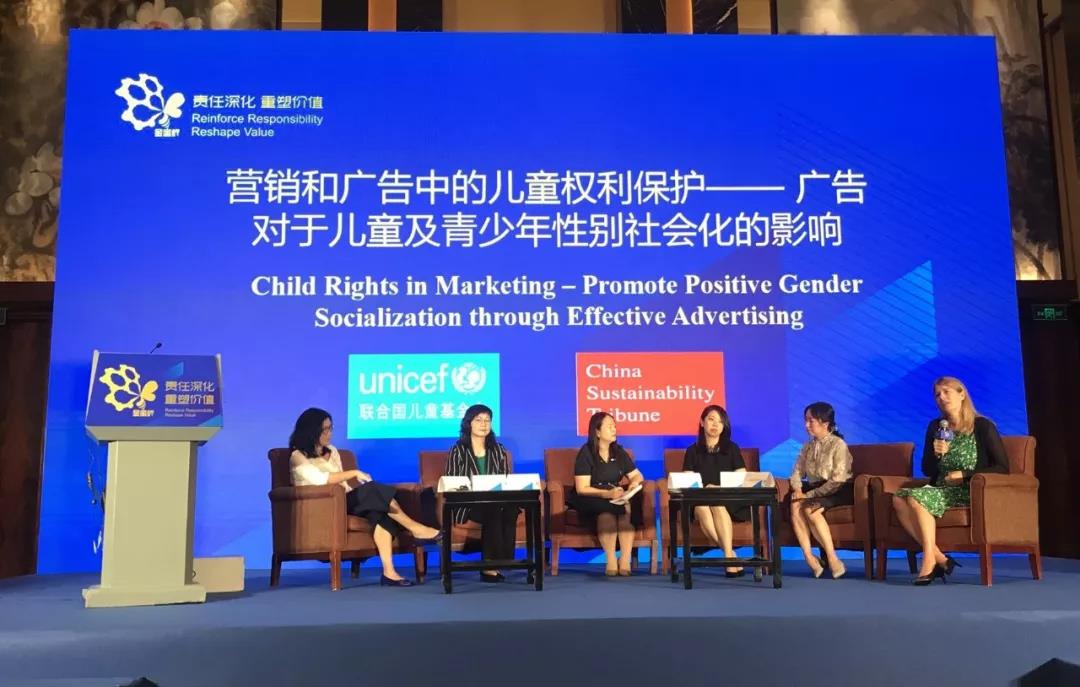
As a professional, international platform for China and European countries to discuss the concept of CSR/sustainability and related practices, the Sino-European CSR Roundtable Forum has updated itself over the past decade. The 20th Sino-Europe CSR Roundtable Forum shared the innovative practices including the application of big data, blockchain, etc. for the transparency of sustainable supply chains.
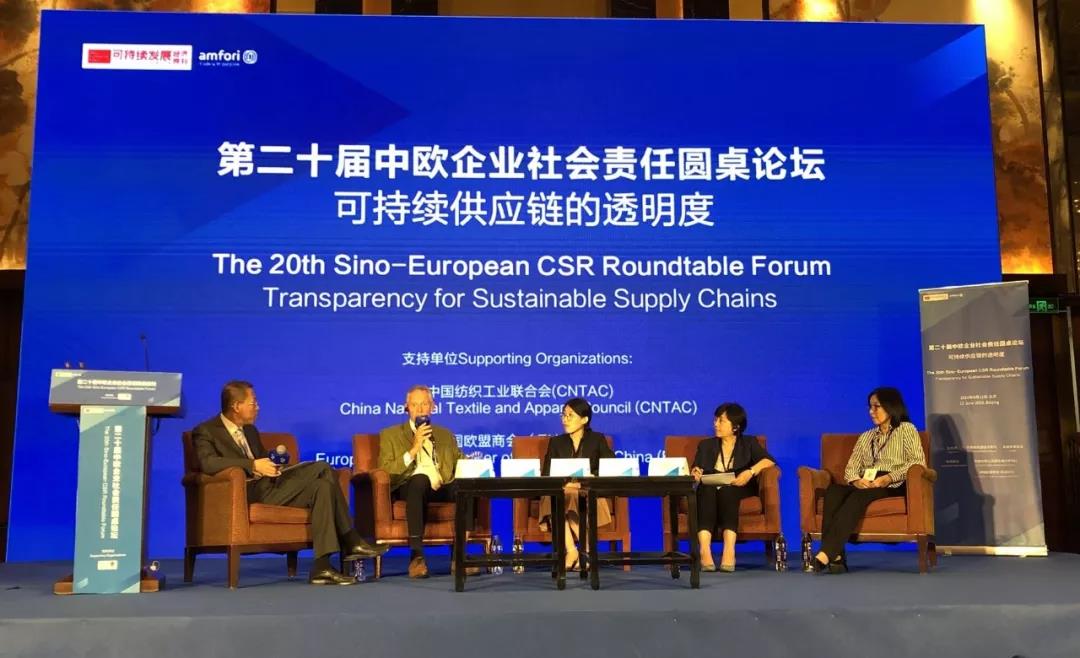
The panel “Sustainable Brand – Developing New Competitive Advantage of Enterprises” shared best practices of the integration of sustainable development and brand building.
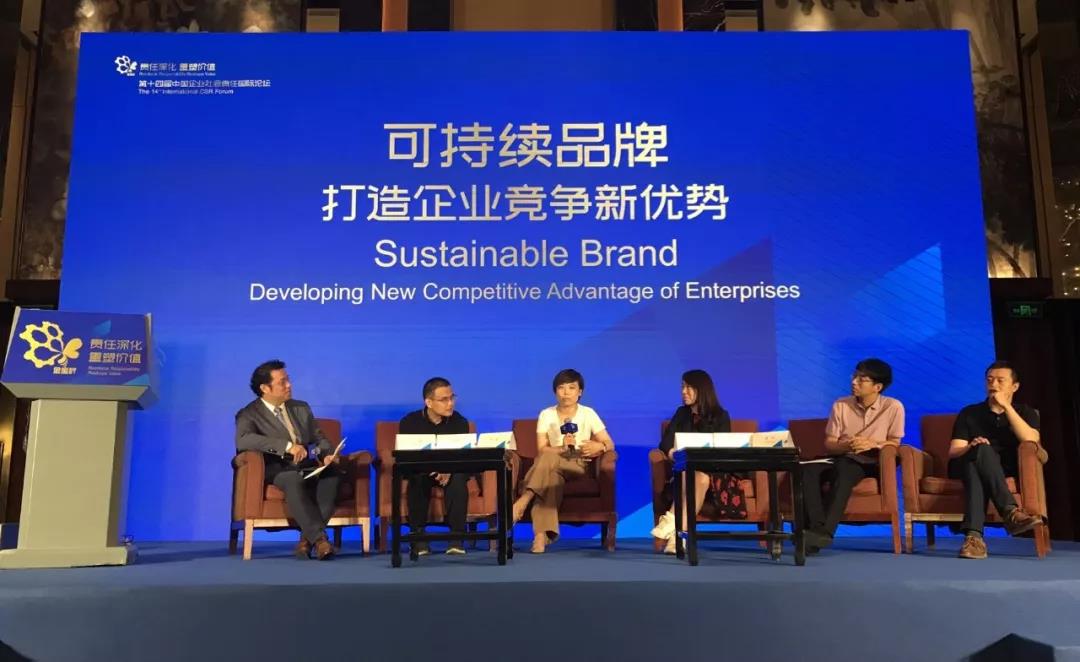
The panel “Targeted Poverty Alleviation - Innovative Practice in the Fight against Poverty” provided a new path for enterprises to better fulfill their social responsibilities and enhance their competitiveness by focusing on cross-border cooperation to support poverty alleviation.
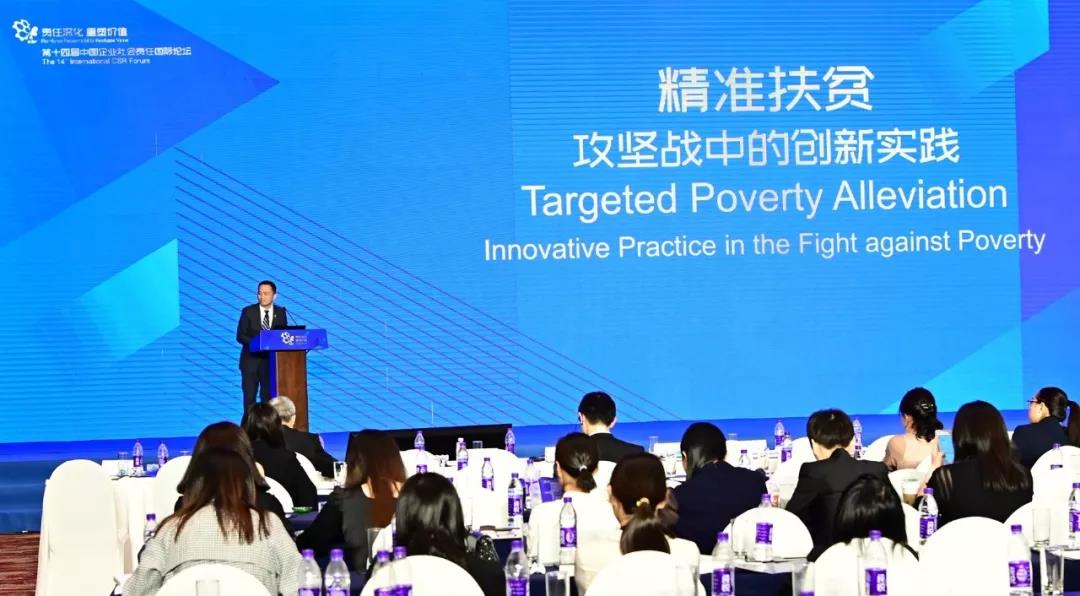
Highlight | ISO 26000 Global Dialogue
On November 1, 2010, the ISO 26000:2010 – Guidance on social responsibility was officially released, bringing a new milestone in the development of social responsibility. For more than eight years, ISO 26000 has shown the important trend – transforming to national (regional) standards, becoming an important reference and linkage for other international standards, and integrating into management systems. However, the value of ISO 26000 still needs more long-term larger, more innovative efforts and promotion.
This panel invited social responsibility experts from the ISO 26000 Stakeholders Global Network, as well as from Japan and Sweden to share the results achieved since the release of the standard and provide a platform for further exploration of the values.
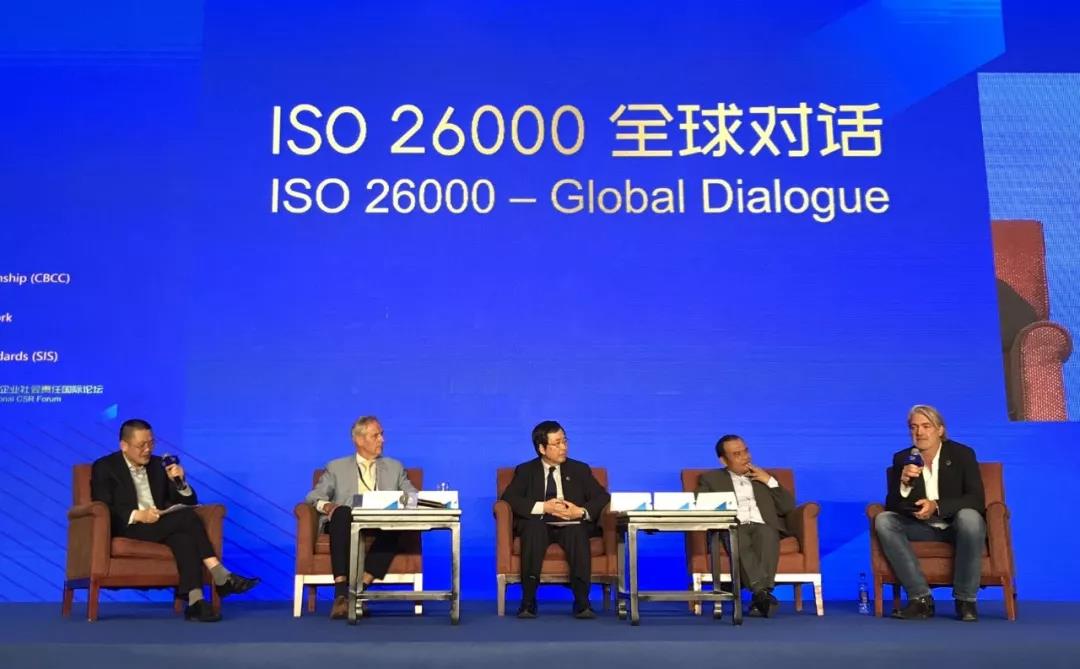
According to Mr. Hans Kröder, Vice Chair of the ISO 26000 Stakeholders Global Network, the organization will continue to promote ISO 26000 as the world’s leading social responsibility standards, becoming a comprehensive and practical approach for all public and private organizations, maintaining links with ISO and ISO member institutions, and expanding network members while giving full play to the value of stakeholder engagement.
According to Mr. Masao SEKI, Steering Committee Chairman of CBCC, ISO 26000 was widely accepted by Japanese enterprises after its release. The Keidanren’sCharter of Corporate Behavior was revised with reference to ISO 26000.
In Sweden, ISO 26000 was also widely recognized by Swedish companies after its release. Daniel Steinholz, Member of Sustainability Committee, Swedish Institute for Standards (SIS), said that Swedish practice has proven that it is feasible for companies to use ISO 26000 as a tool to assess their level of CSR fulfillment, and relevant certification mechanisms are being further refined.
Regarding the progress of the core issues of ISO 26000 in Southeast Asia, Suharman Noerman, Vice Chair of ISO 26000 Stakeholders Global Network, said that human rights complaints mechanisms, workplace health and safety, sustainable use of resources, fair competition, consumer complaint channels, and participation in community activities still faced great challenges. At the same time, he pointed out that green finance would be a general trend of future business development and an opportunity to achieve sustainable business development.
Action | Three new initiators joins “GoldenBee Global CSR 2030 Initiative”
GoldenBee has always adhered to the philosophy of “responsibility competitiveness contributes to sustainable development”, leading the development of CSR in China in a more in-depth and broader way.
As an upgraded version of the “GoldenBee CSR 2020 Initiative”, the “GoldenBee Global CSR 2030 Initiative”, based on the key words of “common vision, responsible competition, targeted practice, cross-border cooperation and shared value”, calls on fulfilling social responsibilities at a higher, broader and deeper level, and contributes to China’s implementation of the 2030 Agenda for Sustainable Development and the ultimate realization of the UN SDGs.
At this forum, the new action of “GoldenBee Global CSR 2030 Initiative” was launched by new initiators including Sinochem International Corporation, Inner Mongolia Yili Industrial Group Co., Ltd. and Meituan. They also gave keynote speeches respectively titled “FINE 2030”, “Green Industrial Chain Promotes Biodiversity Conservation” and “Enjoying Your Pleasant Time with Food”. Meituan also released the Meituan Social Impact Report 2018.

So far, a total of 27 enterprises and 2 institutions have become co-initiators of the “GoldenBee Global CSR 2030 Initiative”. From the “GoldenBee CSR 2020 Initiative” to the “GoldenBee Global CSR 2030 Initiative”, the initiator enterprises promoting social responsibility and sustainable development has maintained a good continuity, and the number of initiator enterprises has grown steadily.
As a model of contributing to SDGs with “responsibility competitiveness”, the practice of GoldenBee that is carrying out or about to implement in China, will send out China’s voice of promoting global sustainability, and contribute to the global transition to a sustainable development.
Best Practices
- The 100-year brand — Air Liquide also has a sense of juvenile
- Beijing Public Transportation Corporation: Developing green transportation to build a harmonious and livable capital
- CGN: Building a modern factory in barren deserts and developing a new win-win cooperation model along “Belt and Road”
Upcoming Event

All the materials on the site “Source: XXX (not from this site)” have been reprinted from other media. They do not imply the agreement by the site.
All the materials with “Source: CSR-China Website” are the copyright of CSR-China Website. None of them may be used in any form or by any means without permission from CSR-China Website.
GoldenBee Official WeChat
Copyright © Csr-china.net All Right Reserved.
京ICP备19010813号










